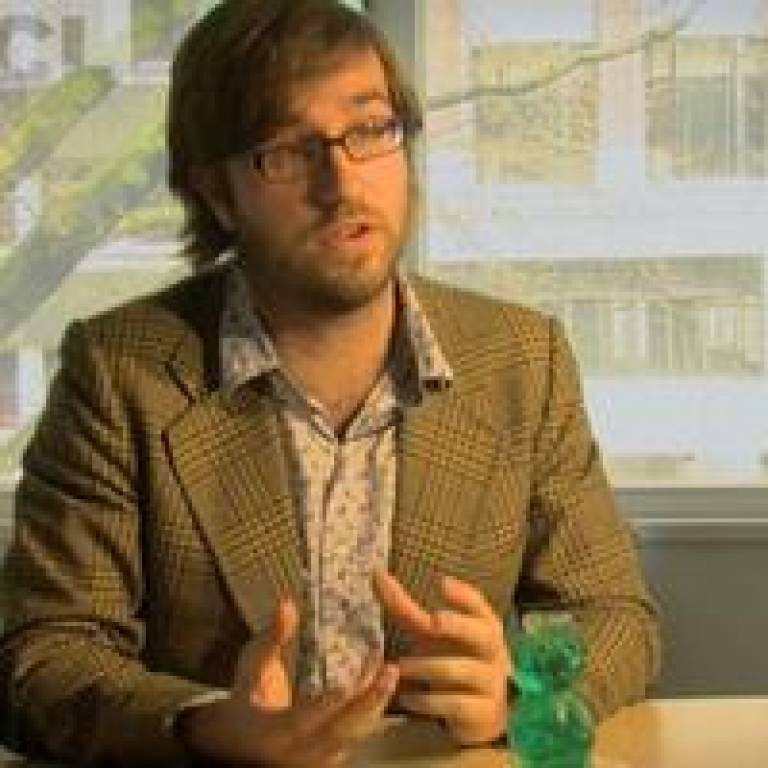Mini-lecture: Seeing tumour treatment in a new light
11 May 2010
To mark Cancer Prevention Week, Dr Martin Austwick (UCL's National Medical Laser Centre) demonstrates how the centre is using laser technology to detect and treat tumours.

"Photo dynamic therapy uses light, it uses a particular type of drug and it uses oxygen in the body together to create a therapeutic effect. I always think of it as a technique that uses three boring things to get to something interesting because on their own each of these elements doesn't do anything. The laser doesn't do very much on its own, we use drugs called photo-sensitisers which wouldn't have any effect on their own, but when you shine a laser light on them they become activated and can start to react with the chemicals around them.
"There are two very obvious advantages to this type of therapy: it's very targeted and it only kills living cells and not the tissue structure. Traditional laser treatments or surgical treatment break apart the scaffolding of the tissue which means when they heal, the patient can be left with scarring, but with photo dynamic therapy the structure stays intact so the patient doesn't get the same degree of damage or disfigurement."
Watch Dr Austwick as he uses a glass bear and some food colouring to explain how the process works.
Image above right: Dr Martin Austwick
UCL context
The National Medical Laser Centre (NMLC) is a research centre dedicated to increasing scientific understanding of the interactions between laser light and biological tissues to improve the diagnosis and treatment of a wide range of diseases. The NMLC has an outstanding reputation worldwide for its research on the use of photodynamic therapy (PDT) in treatment of dysplasia and cancer of the mouth, lungs, gastrointestinal tract, bile duct, and other organs.
Recent related news
Colorectal cancer incidence slashed through single screening test
UCL scientists discover 'traitor' human DNA helps viruses cause cancer
 Close
Close

